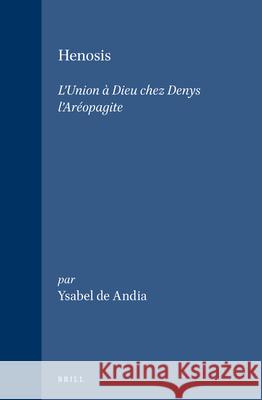Henosis: L'Union À Dieu Chez Denys l'Aréopagite » książka
Henosis: L'Union À Dieu Chez Denys l'Aréopagite
ISBN-13: 9789004106567 / Francuski / Twarda / 1996 / 536 str.
In the first part of this study, the theme of the union (henosis) is analysed in Dionysius the Areopagite's De Divinis Nominibus. The starting point of this inquiry is the trinitarian theology of Dionysius. He distinguishes between Union (henosis) and distinction (diakrisis), ad intra of the divine Persons and ad extra of the divines names, understood as powers. The movement of procession and conversion of the divine names follows the very structure of the treatise: from the Union to the One, a movement called "the circle of love." In a second moment, the word henosis or the formula henosis hyper noun, "union above the intellect," are analysed in the De divinis nominibus, where they allude to the "union without confusion" of the ideas one with the other, or to the union of intellect with God in the unknowledge. The second part is dedicated to the union with God in the De Mystica Theologia. The author first studies Moses' ascension and his entrance in the Darkness within the tradition of the commentaries of Exodus, such as Philo's or Gregory of Nyssa's treatises De Vita Mosis; she analyses the progress of negative theology towards the mystical union and she tries to identify the "unknown God" with whom the intellect becomes unified in the neoplatonician theory and also in the context of Paul's discourse on the Areopage. She concludes with an examination of the unio mystica and its major features in Pseudo-Dionysius.











